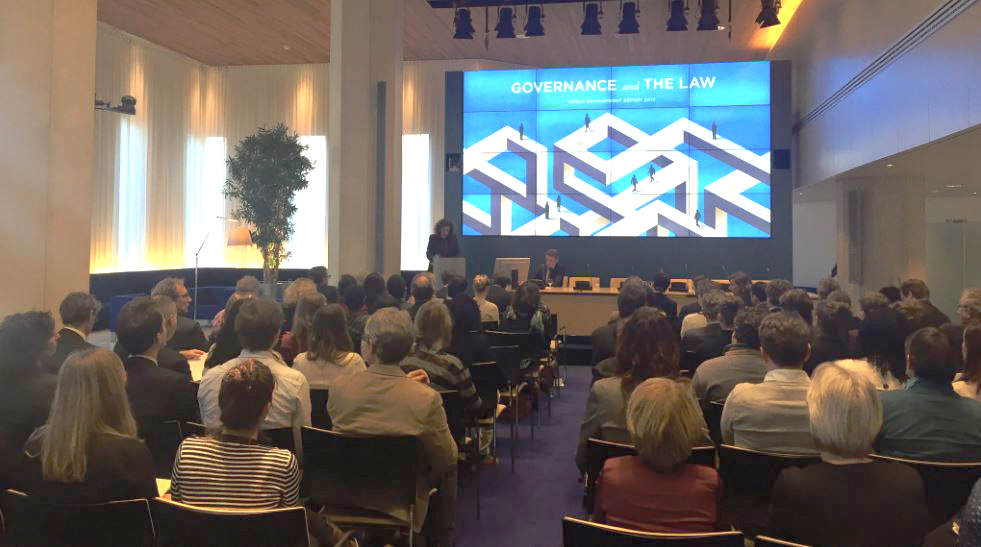NIMD at the launch of the World Development Report 2017

On 15 February, the World Bank launched its World Development Report (WDR) 2017, entitled “Governance and the Law”, in The Hague, the Netherlands. As part of the launch event, NIMD led one of the working groups focusing on democratic governance in relation to the new report.
The launch ceremony
The launch featured a welcome by Ingrid van Engelshoven, Vice Mayor of The Hague and an introduction by Frank Heemskerk, Executive Director of the Board of the World Bank Group. Edouard Al Dahdah, member of the World Bank’s WDR 2017 team, then presented the key elements from the report.
Christiaan Reebergen, Director General for International Cooperation, gave a speech on the relevance of governance and the law in Dutch development policy, after which he received a first copy of the report.

Working group discussion
In a dedicated working group on democratic governance, NIMD moderated a session for representatives of organisations working on democratic governance, the Netherlands Ministry of Foreign Affairs and academia.
The group discussed the content of the report and in general were very much in agreement with the main findings. They found the plea to look beyond the mere form of (democratic) institutions and to consider their function in a given society extremely relevant. Similarly, the call to look at power relations and the role of law, rather than simply supporting rule of law in international cooperation resonated with the discussants.
The participants concluded that an official World Bank report that clearly recommends taking a political look at development interventions is not only welcomed, but also essential to applying the recommendations in practice.
About the WDR
The World Bank’s landmark report aims to sheds new light on how governance and the law can help promote effective sustainable development by mitigating power asymmetries to bring about more effective policy interventions.
With a focus on effective policy-making and the rule of law, the WDR concludes that change is possible if elites, citizens, and international actors shift incentives, reshape preferences and beliefs, and enhance the contestability of the decision-making process.
